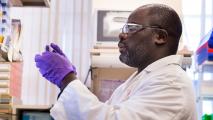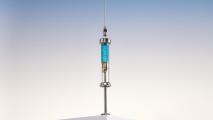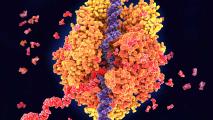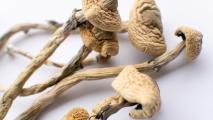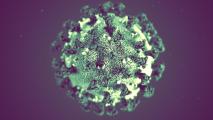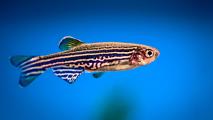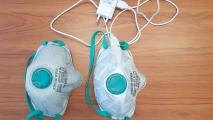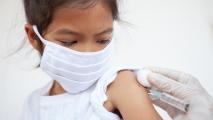
Biotech
Human history has been all but defined by death and disease, plague and pandemic. Advancements in 20th century medicine changed all of that. Now advancements in 21st century medicine promise to go even further. Could we bring about an end to disease? Reverse aging? Give hearing to the deaf and sight to the blind? The answer may be yes. And soon.
More
First coronavirus antibody drug trial launches in us
An antibody drug developed to treat people with COVID-19 — and potentially prevent new infections — is now being tested in humans.
Hospitals, morgues, and drive-ins: Empty stadiums fill new purposes
Their roars dulled, empty stadiums are serving as field hospitals, supply depots, morgues, drive-in theaters … and an Airbnb.
Telemedicine is the new normal. But can it survive after COVID?
As medical professionals struggle to meet the needs of patients during the coronavirus pandemic, telemedicine companies have become welcome allies that could drastically alter the future of healthcare.
Ketamine discovery may lead to new antidepressants
Researchers have uncovered new insights into how ketamine affects the brain, potentially illuminating the path to new antidepressants.
New health wearable measures sweat to track your mood
An app that works with a wearable wrist sensor to track how much a person sweats could change how we harness the power of biodata in the future.
New drug could provide long-term HIV prevention
HIV prevention typically requires a daily pill. A new, injectable drug may be able to work for over a month at a time.
Wearables can detect coronavirus symptoms early
A study involving more than 600 people found that the Oura Ring wearables can detect coronavirus symptoms 72 hours prior to onset with 90% accuracy.
Gamers are helping find COVID-19 vaccines
Developing COVID-19 vaccines is a challenge. RNA platforms show some promise, but overcoming their drawbacks requires help — perhaps from a video game.
The science behind your crazy pandemic dreams
If you’ve been having strange dreams and poor sleep during lockdown, you’re not alone. The anxiety-inducing pandemic, less activity, and more screen-time have many more people struggling with insomnia than usual.
This company is using beer yeast to make psilocybin
Brewing the magic in Psilocybe cubensis is difficult at scale. One Danish company thinks beer yeast may be the answer.
Japan ends state of emergency, seniors DJ from home, and more
In our weekly news roundup, we take you inside the fight against COVID-19 to explore the solutions on the frontlines of an unprecedented global response.
The rise of virtual therapy
In a time when the need is great and the future is unknown, virtual mental health services like BetterHelp are bringing relief and hope.
Prosthetic leg uses AI to adjust to different terrains
A new computer vision system developed to work with a prosthetic leg predicts the type of terrain ahead so that the limb can adjust accordingly.
How GMO zebrafish could inspire new infertility treatments
By genetically modifying zebrafish, researchers have discovered a sex hormone that could lead to future infertility treatments for humans.
New app lets sports fans cheer (or jeer) athletes remotely
Yamaha’s “Remote Cheerer” system lets sports fans stuck at home during the pandemic use an app to make noise at live sports facilities.
A new electric face mask kills the coronavirus
A new electric face mask prototype uses heat to kill the coronavirus. Another model generates an electric field that hinders its ability to infect cells.
This ultrasound connects to an iPhone to help catch COVID-19
Ultrasound can be a useful diagnostic tool for COVID-19. A portable ultrasound machine called the Butterfly iQ may make it safer.
Is it safe to hang out with friends now?
As more states ease up on lockdown restrictions, many of us are asking: is it safe to hang out with friends now? Here’s everything you need to know.
“Off-switch” in mouse brains offers new hope for pain relief
A newly discovered part of the mouse brain appears to naturally stop pain processing, and it could lead to more robust pain relief options in the future.
Children and seniors to join Oxford’s coronavirus vaccine trial
Oxford University is enrolling people older than 70 and children between the ages of 5 and 12 in a Phase 2 coronavirus vaccine trial.
Get inspired with the most innovative stories shaping the world around us.













